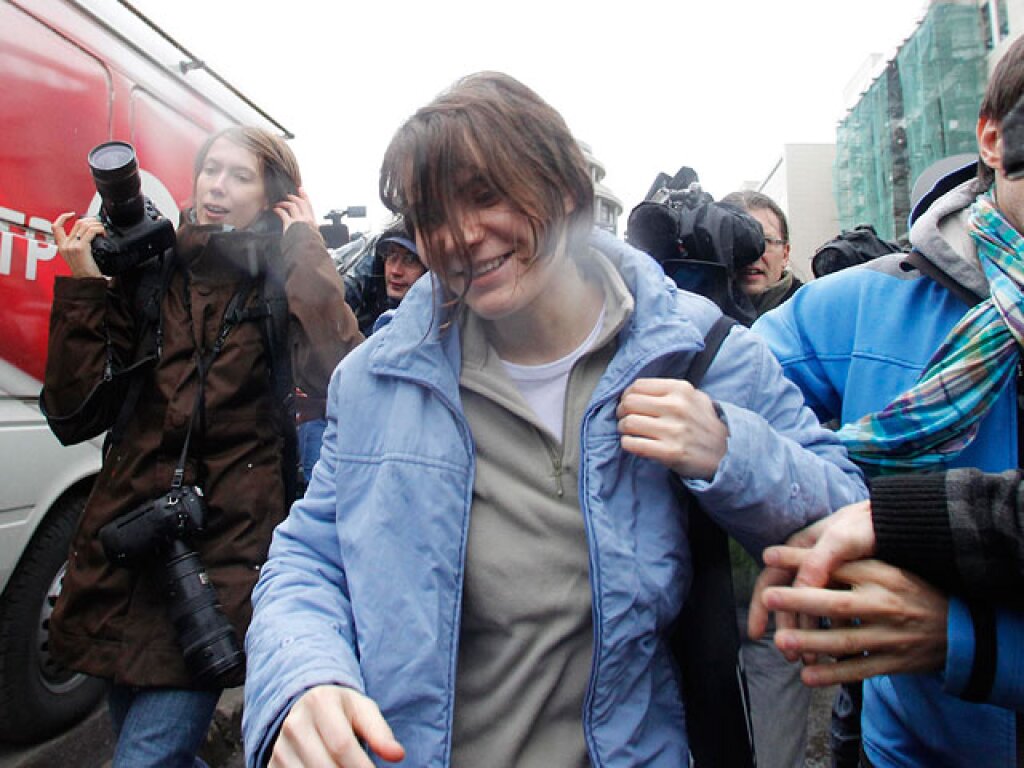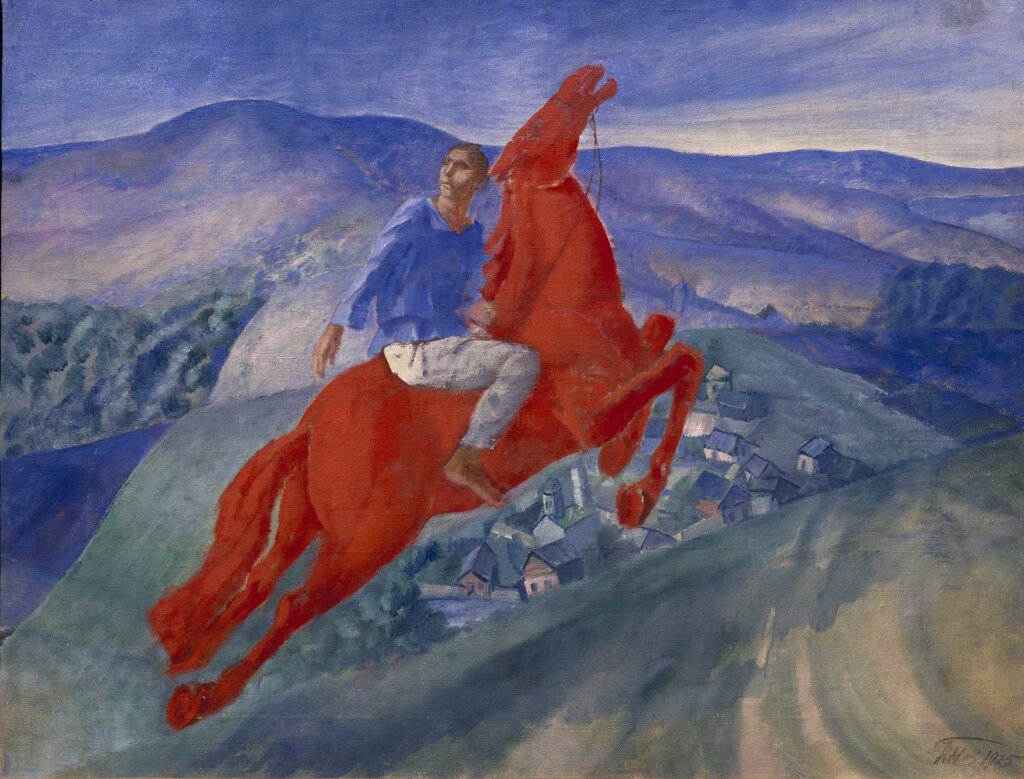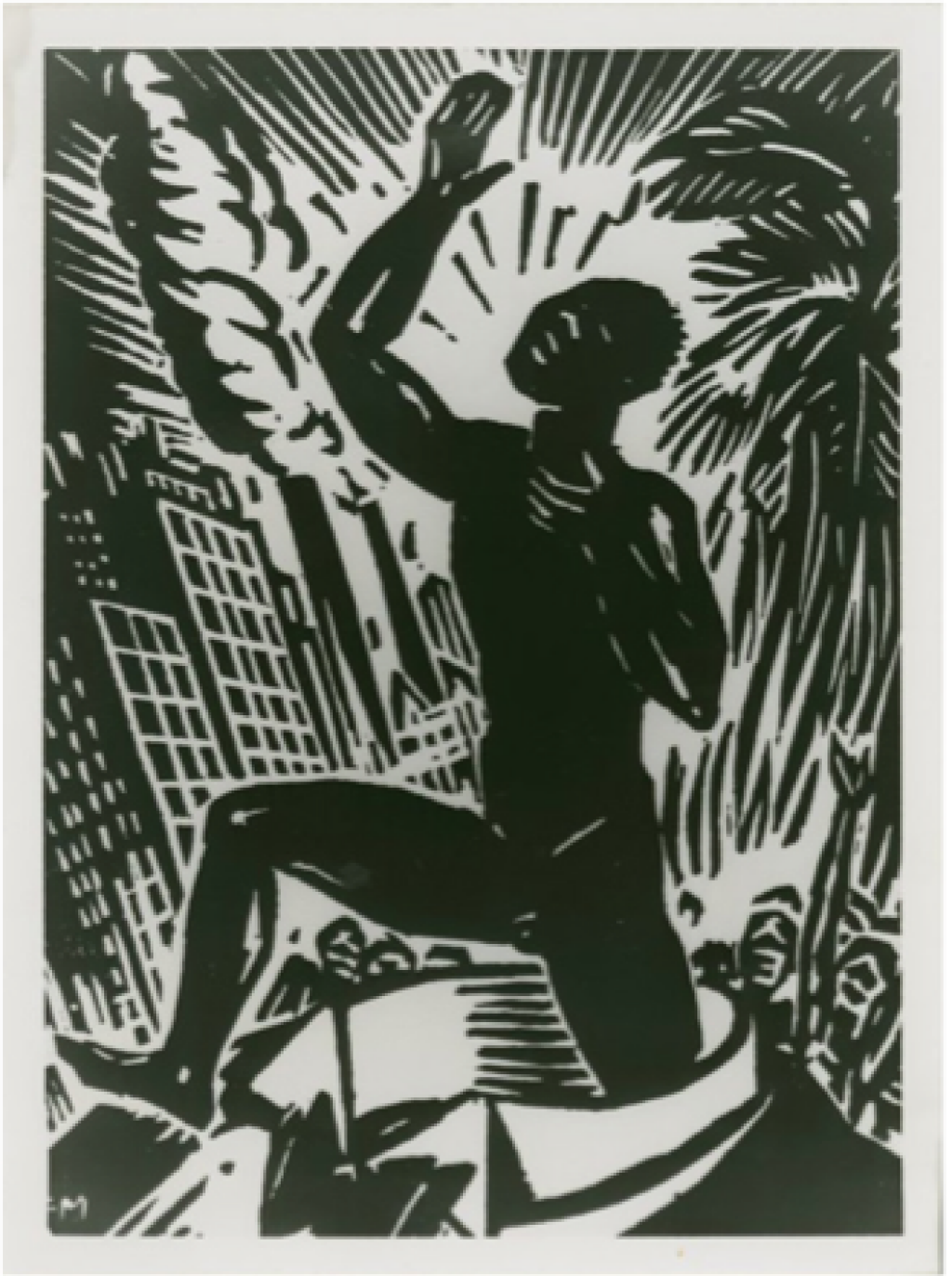Why does the first piece of good news in the Pussy Riot case feel like bad news?
As a result of today's surprise decision by the Court of Cassation, Yekaterina Samutsevich has been freed from prison, her two-year sentence replaced by probation. Her colleagues, Maria Alyokhina and Nadezhda Tolokonnikova, remain behind bars, awaiting their transfer to a penal colony far from their homes in Moscow. Statistically, this is an indisputable change for the better: one-third of all Pussy Riot defendants have been set free. But the small numbers involved render statistics irrelevant, and focus our attention on the individual suffering and persecution of the remaining prisoners of conscience.
If we momentarily suspend the absurdity of the trumped-up charges against Pussy Riot, the case for handling Samutsevich separately makes sense. Samutsevich (I refuse to refer to follow her on-line supporters in referring to her as Katya--the infantilization of intellectually sophisticated feminist protesters as "girls"who are called by their nicknames is pernicious) was prevented from full participation in the infamous "punk prayer" at the Church of Christ the Savior, thanks to the timely intervention of a security guard. Therefore, she never had the opportunity to join in what the prosecution characterized as the group's "Satanic dancing" ( the tone-deaf court appears unable to distinguish between "Mother of God, Drive Putin Out" and "Sympathy for the Devil.") To the extent that there is any juridical logic to the case, Samutsevich was even more "innocent" than Alyokhina or Tolokonnikova.
The ruling comes on the heels of Samutsevich's abrupt dismissal of her lawyer, Violetta Volkova, for reasons that were initially unclear. Now it appears that separating her case from that of her colleagues was the pretext for reassessing Samutsevich individually. Both before and after her release, Samutsevich stated that there has been no "schism" in Pussy Riot, and, indeed, Alyokhina and Tolokonnikova seemed genuinely happy for her when the decision was announced.
But the result is probably the regime's first smart piece of public relations in the Pussy Riot case, at least as far as the outside world is concerned. All three prisoners gave the impassioned, intellectually persuasive speeches in court that we have come to expect, and the frequent, impatient interruptions by the judges went a long way towards increasing Pussy Riot's credibility as victims of political persecution. But that is not the story today, since the unexpected release of one of the Pussy Riot prisoners has trumped anything the women themselves could say.
Of course, irony still abounds in the Pussy Riot case. Indeed, irony seems to be the case's natural habitat: three women are accused of an offensive appeal to the Mother of God, and the one released is the only defendant who doesn't have a small child at home waiting for her. Today's decision was handed down only a few days after the typically excessive tributes in honor of Vladimir Vladimirovich Putin's 60th birthday, which included this perfectly orchestrated example of just how good, compliant women are expected to honor the nation's ruler (for those who don't speak Russian, the white-garbed ladies are each offering Putin a different flavor of jam, along with an umbrella in honor of his efforts to shield the Motherland from crisis). This otherwise inconsequential video unwittingly justifies the outrageousness of Pussy Riot: given the oppressively kitchy symbolism with which the regime surrounds itself, political protest and aesthetic protest must be inextricably linked.
Which brings us back to Samutsevich. The judges warned her that she must refrain from "committing any new crimes" until the end of her suspended sentence, under threat of immediate incarceration. Presumably, she must not only watch what she does, but also watch what she says. It may well be that, in the best traditions of Soviet dissidence, Tolokonnikova and Alyokhina will have more freedom of speech in their prison colony than Samutsevich will in Moscow. But of course, no one will be able to hear them.



